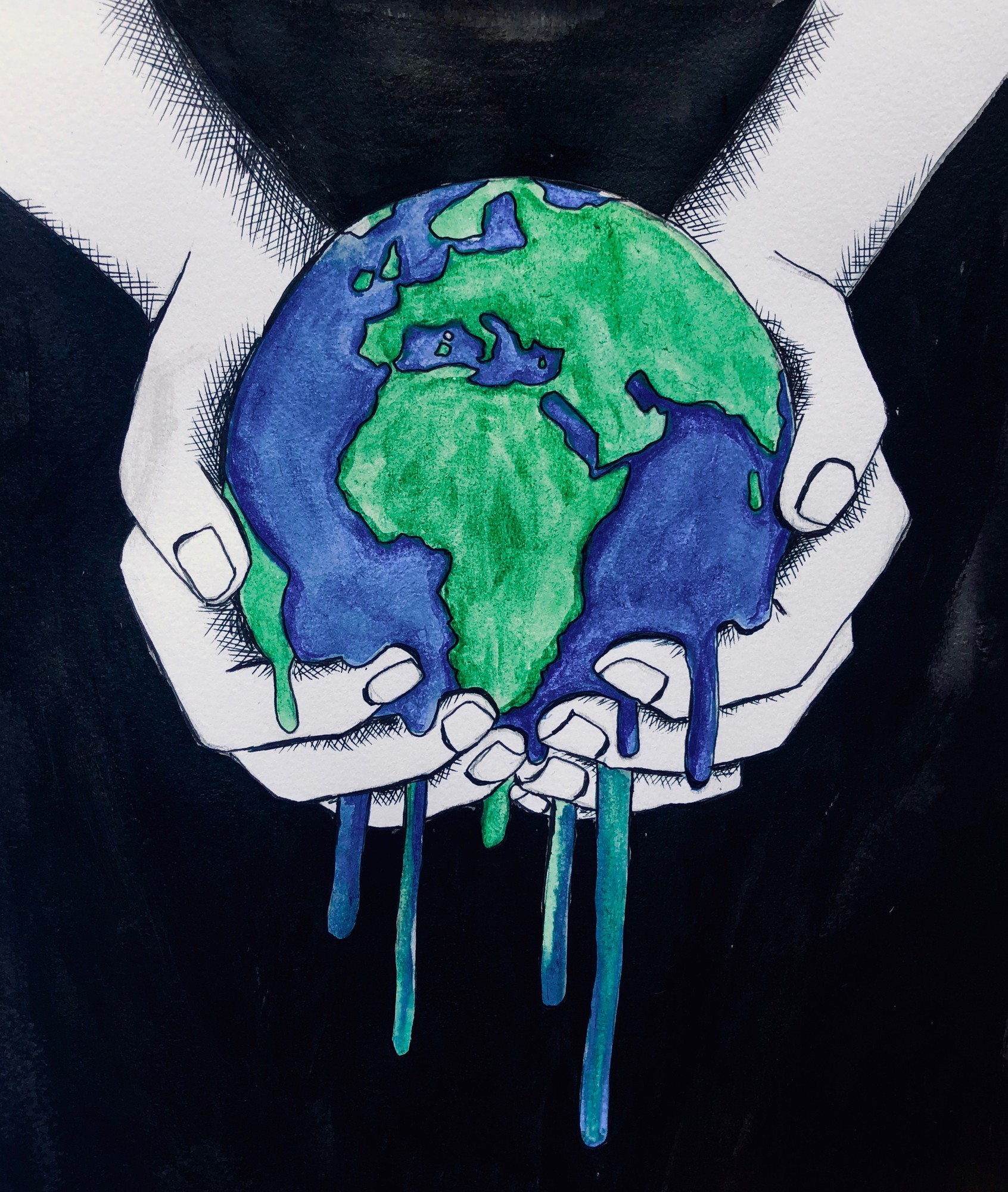As global temperatures rise, already dry Los Angeles will feel the heat

(Hanna Rashidi/Daily Bruin)
By Celia Janes
Oct. 28, 2018 11:54 p.m.
Strong effects of climate change will be felt in the next two decades, a report from the Intergovernmental Panel on Climate Change claimed early this month. Westwood is no exception to this rule.
The report claimed global temperatures will rise by over 2 degrees Fahrenheit above preindustrial levels by 2040, leading to increased wildfires, more extreme droughts and rising water levels. These findings mean the worst effects of climate change will be felt in the lifetime of most of the global population, according to The New York Times.
Katharine Reich, an associate director of UCLA’s Center for Climate Science, said the effects of global warming will have prominent effects worldwide, including in Los Angeles. She said as global temperatures rises, dry regions will become drier and wet regions will become wetter. This means desert regions such as Southern California will face more frequent and severe droughts in the future.
“For a number of significant weather events, such as hurricanes, wildfires and heat waves, scientists are able to say that climate change has played a role,” Reich said.
Neil Berg, also an associate director at the Center for Climate Science, said the Los Angeles area is experiencing unprecedented heat levels, which will continue to rise along with the global temperature. He said he thinks these changes are so striking because they are abnormal compared to what researchers have seen historically.
Berg added that Westwood reached record-breaking high temperatures this July, leading to a power outage in the city. The high heat caused thousands of Angelenos to lose power due to sharp increases in electricity use, according to the Los Angeles Department of Water and Power.
These high local temperatures are also associated with increased health risks, Berg said. Underprivileged communities, particularly those who live without air conditioning, will be the most affected.
Nurit Katz, UCLA’s chief sustainability officer, added that as temperatures rise, harmful diseases such as those caused by the Zika virus will occur at higher latitudes.
“Diseases that were traditionally considered tropical are already showing up in the United States due to climate change, which is scary,” she said.
Katz added rising temperatures will also lead to a feedback loop as people use air conditioning more often during the warmer months. This further increases emissions, which exacerbates global warming. She said this is especially a problem for university buildings, which are sometimes required to stay cool.
Researchers at UCLA have examined the impacts of rising temperatures by looking at the snowpack in local mountains, Berg said. UCLA researchers have noticed that industrial emissions and global warming have reduced precipitation in the mountains, reducing the amount of water available to those living in Los Angeles.
“Los Angeles gets most of its drinking water from melting snowpack, which we’ve seen less of in recent years,” he said.
California droughts impact the health of native environments as well, Katz said. She said the droughts’ effects have significantly impacted the health of trees in Los Angeles. Many trees have been drying as a result of rising temperatures.
“That’s another very local impact that people might see visibly,” Katz said.
UCLA is committed to making changes to reduce its emissions and achieving carbon neutrality by 2025, Katz said. Sixty percent of the university’s vehicle fleet is already made up of clean vehicles, and UCLA has two fully electric buses on campus.
“We’re also working on increasing renewable energy on campus by adding solar installations,” Katz said.
Students and faculty can often make small changes to help reduce emissions and mitigate the impacts of climate change, Katz said. She suggests students turn off lights during the day and dress for the weather to reduce reliance on heating and cooling systems. She also suggests students rely more on walking, bicycling or carpooling for transportation to reduce single-person car usage.
Changes need to occur on a large scale as well in order to effectively mitigate the effects of climate change, Reich said. She added students can impact carbon emissions and climate change most effectively by voting. She said she encourages citizens to elect politicians who will enforce policies that will mitigate climate change.
“The most powerful tool you have to influence the makeup of the government and what they do is your vote,” she said.


